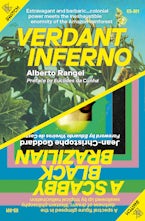The Conspiracist Manifesto should prompt a reconsideration of the question raised previously by both Jameson and Latour: Can the reflexive skepticism of “critical theory” be distinguished from that of “conspiracy theory”? What is—and what should be—the proper relation between these two bodies of “theory,” both ostensibly defined by radical suspicion?
Geoff Shullenberger
The Chronicle of Higher Education
As the events of January 6th dramatically illustrated, the conspiracy, as both an organization and way of thinking, is capable of mobilizing many folks in potentially powerful and/or devastating ways. In an era of politics defined by half-truths, out-right lies, and misrepresented data, conspiratorial thinking seems like a double-edged blade, as likely to hurt the credibility and effectiveness of leftist political mobilization as it is to help. The Conspiracist Manifesto provides the most compelling and pragmatic attempt to wield that weapon to date.
Mira Mason
The Columbia Review












